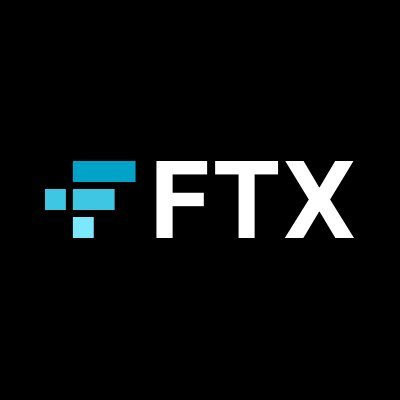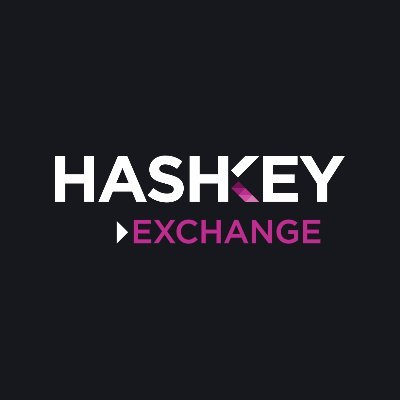Obstacles to Hong Kong's Dream of Becoming a Cryptocurrency Hub
Original Title: Hong Kong's crypto hub dream mired in high costs, other barriers one year on, with JPEX but one stumbling block
Authors: Matt Haldane, Dylan Butts, Xinmei Shen
Translation by: TaxDAO
Hong Kong has grand dreams for its cryptocurrency and Web3 industry, but struggles to attract foreign businesses and the new regulatory framework has been slow to take off.
Last Halloween, a giant virtual avatar of Sam Bankman-Fried appeared on stage at Hong Kong FinTech Week, where he was asked about plans for Hong Kong to become a "global cryptocurrency hub."
"I think (Hong Kong) can regain that status," he told the crowd gathered in the hall. The billionaire, who attended remotely from the Bahamas, had already moved his cryptocurrency exchange and related trading firm Alameda Research from Hong Kong to the Bahamas. "When you look east, it's not obvious… it could be Hong Kong, it could be Singapore, or it could be one of the other places."
A year later, the situation remains unclear. After the company's bankruptcy, SBF was detained in the U.S. and is facing trial on charges including wire fraud. Several other exchanges connected to Hong Kong have either gone bankrupt or are facing extreme financial difficulties. Recently, the JPEX scandal led to over HK$1.5 billion (US$192 million) in losses, following more than 2,500 complaints against the exchange, which is ostensibly based in Hong Kong, with the identity of its operators still undetermined, resulting in at least 28 arrests.
Before the last FinTech Week, Hong Kong made a big announcement about its efforts to become a virtual asset hub. Less than two weeks later, FTX went bankrupt. The JPEX incident—potentially the largest financial fraud in Hong Kong's history—along with the high costs of licensing procedures, has raised doubts about the city's ability to attract large industry players while meeting the broader industry's needs.

In many ways, Hong Kong's efforts to legitimize the cryptocurrency industry through regulation reflect what is happening globally, from Singapore to Dubai to Europe. However, while other markets are trying to curb unruly participants, the hype in Hong Kong has reached a fever pitch. This is because cryptocurrency companies are trying to leverage the new momentum of a semi-autonomous financial center in China, formed outside the mainland's cryptocurrency ban.
"About two years ago, a similar situation arose in Dubai, with global exchanges flocking to the city, just like those optimistic about Hong Kong," said Tung Li Lim, senior policy advisor for Asia-Pacific at blockchain analytics firm Elliptic. "It seems like a game of musical chairs, as recent media reports indicate that Dubai is tightening scrutiny of license applicants… and the global nature of cryptocurrency means companies can easily pull themselves out of the host country."
This was exactly what happened in 2021, when exchanges like FTX and Crypto.com moved their operational bases out of Hong Kong due to concerns that the voluntary licensing, which at the time restricted trading to professional investors, would become mandatory, affecting their business. Hong Kong-based OSL and HashKey are the only exchanges to have obtained voluntary licenses.
Plans to ban retail cryptocurrency investment in Hong Kong never materialized. New regulations set to take effect in June allow exchanges to sell larger market cap cryptocurrencies (like Bitcoin and Ethereum) to retail traders. However, compared to other markets, there are almost no signs that trading activity is returning to Hong Kong.
Hong Kong dropped to 47th place in this year's Chainalysis Cryptocurrency Adoption Index. The blockchain research firm stated that while Hong Kong remains a very active market, its cryptocurrency trading volume from July 2022 to June 2023 was US$64 billion, down from about US$70 billion the previous year.
Chainalysis research director Kim Grauer stated, "Hong Kong is undoubtedly in a favorable position to establish itself as a cryptocurrency hub, but while the industry may be volatile, much of the real growth is long-term and hard-won." "You have to weather the storm and wait for the growth period. But from what I've gathered from conversations with over-the-counter traders, there is almost no pessimism, and people still excitedly believe that Hong Kong has a very bright crypto future and is continuing to attract new clients from around the world."
The ongoing optimism in the industry regarding Hong Kong has yet to lead to a wave of new businesses moving to the city, with one major obstacle being the cost issue.
Robert Lui, a partner and head of digital assets at Deloitte in Hong Kong, stated that the entire process of obtaining a Virtual Asset Trading Platform (VATP) license could cost companies at least HK$60 million. Companies must hire professionals to liaise with the Securities and Futures Commission. Liu noted that these experts are already hard to find, and few specialize in crypto-related issues. Companies also need to "burn money" on required IT personnel, lawyers, and consulting services, with monthly salaries ranging from HK$200,000 to HK$300,000.
"The current difficulty is that when you try to push something new, the public still cannot clearly distinguish between digital assets and scams using digital assets," Liu said, "This creates a lot of doubts and concerns for the public, leading the government to need to conduct more educational work."
Joseph Wang, a former quantitative analyst who has been helping businesses with licensing, stated that the process lacks a formal checklist and is prohibitively expensive for small companies that must go through "risk avoidance" intermediaries. "They want to talk to the SFC first, then have repeated discussions, and can only apply for a license when the SFC tells them to… Small companies outside of Hong Kong don't even go through these things." He is building an experimental cryptocurrency trading platform and has been going through the licensing process to understand the actual procedures. Although he still "remains optimistic about Hong Kong," he lacks confidence in small companies that lack clarity and may not have the resources that larger companies possess to complete the process.
Under pressure following the JPEX scandal, the SFC released the official list of VATP license applicants last month. Only four companies based in Hong Kong made the list: Hong Kong Virtual Asset Exchange, Hong Kong Digital Asset Exchange, Hong Kong BGE, and Victory Fintech.
When Hong Kong initially announced its push for virtual assets, it sparked interest from exchanges connected to mainland China. Both OKX and HTX indicated they were seeking licenses. In addition to the four formal applicants, more companies have expressed their intention to obtain licenses. OKX's Chief Business Officer Lennix Lai stated last month on X (formerly Twitter) that the company's application is "progressing steadily" and is expected to be submitted this month.

So far, OSL and HashKey remain the only two licensed exchanges in Hong Kong, as they voluntarily upgraded their licenses in August to be able to serve retail clients. As Hong Kong prepares for the new FinTech Week opening on October 30, the city finds itself on a path that others have tried before, but with no absolute successes to serve as a blueprint.
In the 15 years since the initial Bitcoin white paper was released in October 2008, many places have struggled to achieve widespread adoption of cryptocurrency. El Salvador adopted Bitcoin as legal tender, Miami hosted an annual Bitcoin conference to attract industry investors and minted its own cryptocurrency, and Malta was once dubbed "Blockchain Island" for its early crypto-friendly legislation. All of these places have been battered by the boom and bust cycles of cryptocurrency, major bankruptcy events, and the long "crypto winter" that began after the collapse of two interrelated algorithmic stablecoins (Terra and Luna) in 2022. This triggered a series of reactions that ultimately forced FTX to declare bankruptcy last November.
Even many cryptocurrency companies that moved to Singapore are seeking stricter regulation of the industry. Recently proposed rules would require retail traders to go through testing, which seems contrary to Hong Kong's direction.
After a series of bankruptcies and legal disputes in the industry, Hong Kong officials remain committed to a new vision for virtual assets. Although the SFC has faced criticism for not acting quickly enough against JPEX, local industry participants are confident in the new regulations.
HashKey COO Livio Weng stated, "Proactive regulatory measures expose existing industry risks." "While some may criticize or question regulation, objectively speaking, these risks existed before the SFC's regulatory policies were introduced. If the SFC had not proactively exposed this criminal activity, the consequences could have been much worse." Donald Day, owner of Victory Fintech and COO of VDX, stated that the JPEX scandal highlights the importance of Hong Kong's new regulations, "While a year ago some market participants still questioned the value of obtaining licenses and regulation, the current challenges focus on the speed of market expansion, the pace at which other service providers operate in Hong Kong, and to what extent there is a pool of available, experienced, and trained resources." Day added that future growth in the digital asset market will come from providing "clear value-add relative to traditional and alternative solutions," with tokenization of real-world assets being one example.
HashKey and other exchanges based in the city have no choice but to continue working towards this vision. Like many cryptocurrency enthusiasts over the past few years, some believe that more prosperous times are on the horizon. "The bull market is expected to arrive in 2024 to 2025," Weng from HashKey stated. "Bull markets typically lead to a surge in retail participation, with registration numbers 10 times higher than during bear markets."












